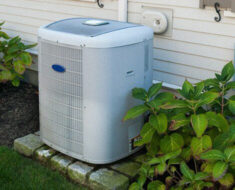
Freepik
No one gets excited about their home insurance policy. It can be tedious combing through your policy line by line, but understanding your policy and how to deal with your insurance company is a very important aspect of homeownership. When something happens to your home, you want to know whether your insurance will cover it or not.
#1 Check What Perils Are Covered
You need to be confident that your insurance policy will cover you if you experience a loss. While certain losses like fire, wind storms, theft, personal liability, and water damage are common in most home insurance policies, perils such as flooding and sewer backups may require additional coverage.
If you find out that your home is in a high-risk zone for flooding, check to see if it’s covered under your policy.
#2 Hire an Insurance Lawyer for Major Claims
When it comes to minor claims, you may be able to do it on your own. But for major claims, especially a claim for a total loss, a lawyer can greatly help when you have a disagreement with the insurance adjuster or when the insurance company makes a low offer.
Carefully choose a lawyer who is knowledgeable about insurance claims. You don’t have to pursue legal action just because you hired a lawyer. Law firms such as Virani Law prioritizes negotiations with the insurance company to obtain a better outcome for the homeowner.
#3 Talk to Your Insurer About Renovations
When you make home improvements such as adding a granny suite above the garage or extending your home, your insurance company needs to know about it. You will have to adjust your coverage and pay a slightly higher premium because you’ve added materials to your home, and the reconstruction costs will be higher if you want to rebuild the extension.
There are also upgrades you can make that could reduce your premiums if they reduce the risk of damage. In other cases, renovations and replacements may be necessary just to keep your insurance, such as repairing an older roof.
#4 Check Your Coverage Limits for Certain Items
Another thing to review on your policy is coverage limits for certain items. The contents part of your insurance may have a broad limit, but there may also be sub-limits for certain types of belongings. These are usually belongings that are more valuable than others and difficult for insurance companies to anticipate unless you get special coverage. Special coverage limits may apply to:
- Electronics
- Jewelry
- Furs
- Fine Art
- Cash
- Spare auto parts
- Other valuables
#5 Understand Actual Cash Value vs Replacement Cost
One of the biggest factors that will determine the size of your insurance claim is whether your coverage is Actual Cash Value or Replacement Cost:
- Actual Cash Value calculates how much your belongings and construction materials have depreciated, and it’s up to you to make up the difference.
- Replacement Cost coverage provides the cost to replace belongings and construction materials, which can make it much easier to replace personal belongings and structural elements.
Understanding your insurance policy will put you in a better position should you ever have to make a claim.









































